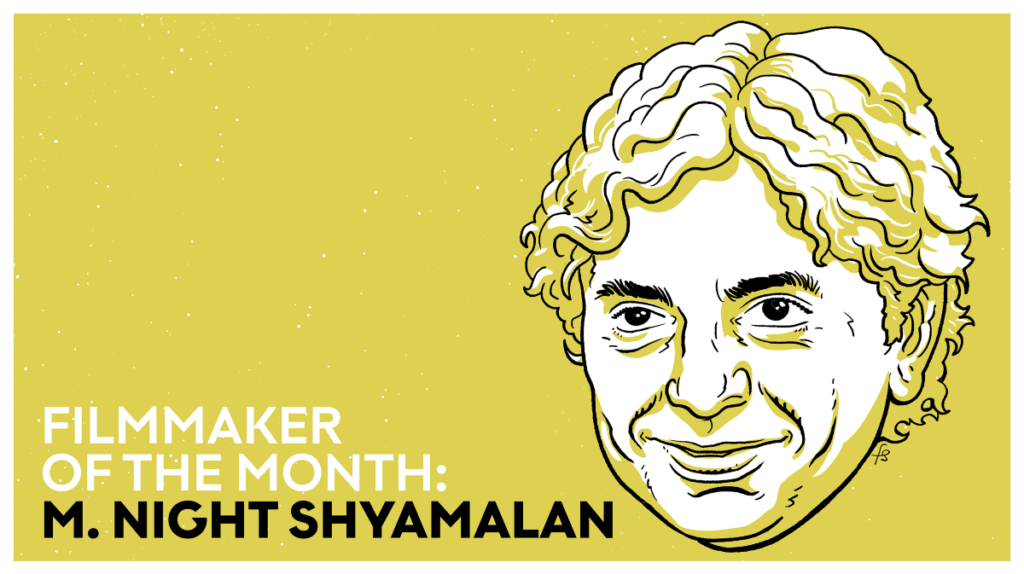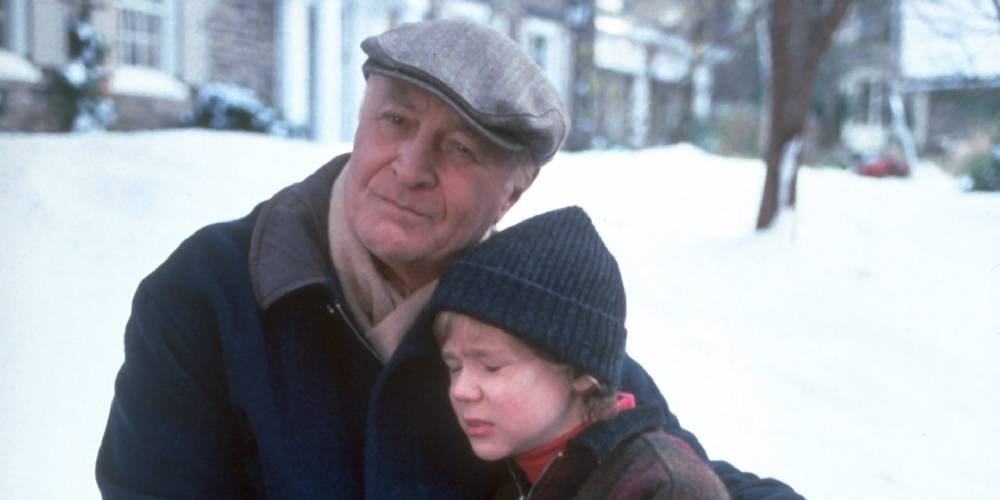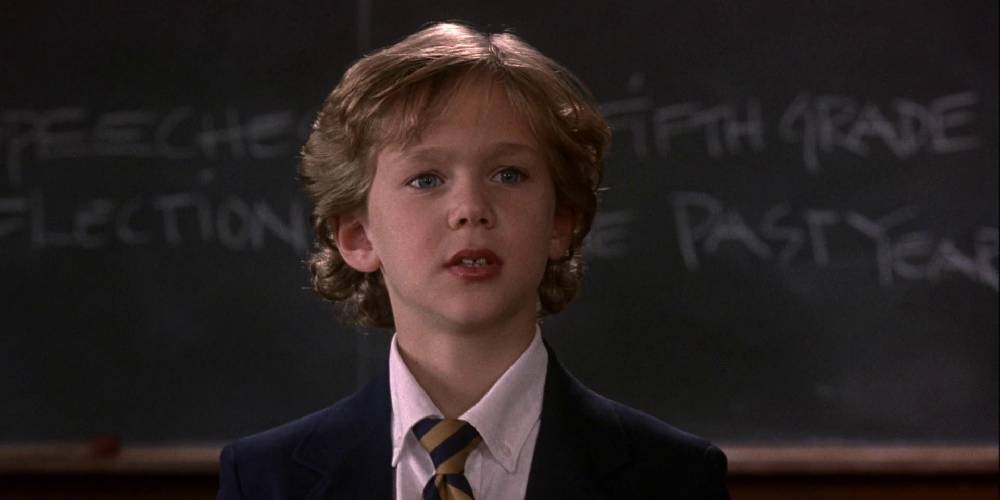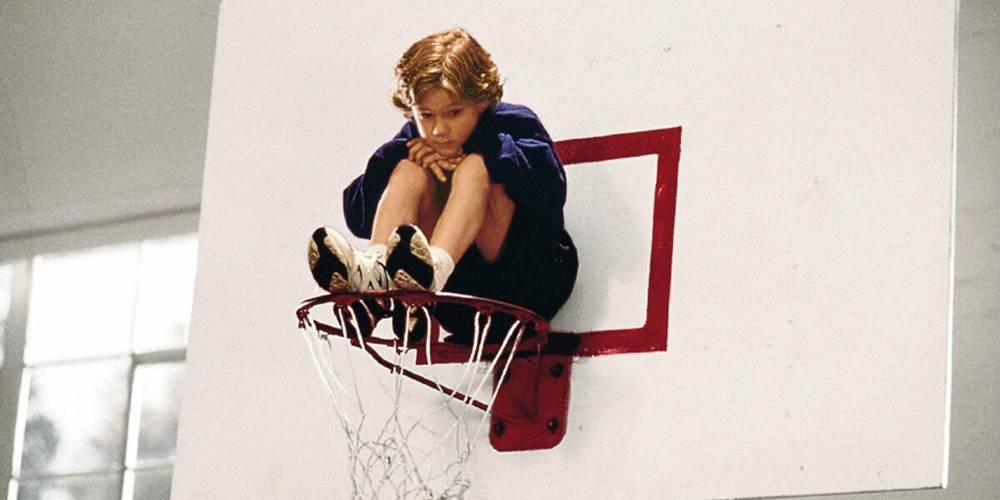Shyamalan’s first theatrical release is far removed from his most famous work—but does contain seeds of the filmmaker he’d become.

When a filmmaker who has been at it for a few years finally hits it big and becomes a major artistic voice, it’s tempting to go back to those pre-fame efforts to look for any hints of what was to come. In the case of M. Night Shyamalan, I suspect that if he had his druthers, his first major film as writer-director (not counting his independently financed and never-released outside the festival circuit debut, Praying with Anger (1992)), Wide Awake (1998), would be wiped from the cultural memory even more than it already has and that everyone would regard his smash hit The Sixth Sense (1999) as his proper debut.
This is understandable. Wide Awake, to be frank, is pretty bad. Had it been made by any other up-and-coming director at the time, it would have been entirely forgotten by everyone except those with a morbid fascination for the films and filmmakers that convicted rapist and former producer Harvey Weinstein ran roughshod over during the height of his powers as the head of Miramax Films in the 90s. And yet, as poor a film as Wide Awake ultimately is, it is interesting to watch today. As far removed as it is from Shyamalan’s usual genre mode, it does feature prototype versions of several of the tropes, tricks, and trademarks that would make Shyamalan one of the most instantly recognizable filmmakers of our era.

The film is a coming-of-age story for one Joshua Beal (Joseph Cross), a 10-year-old boy who’s been knocked for an existential loop in the wake of the death of his beloved grandfather (Robert Loggia) and is dissatisfied with the ineffectual answers to pertinent questions he’s been asking about our existence and what happens when we die that he asks his distracted parents (Denis Leary and Dana Delany) and the teachers at his Catholic school. Thus, Joshua decides to set off on a personal mission to find a real sign that God and Heaven exist and that his grandfather is there and doing okay.
Aiding Joshua on this spiritual quest is his best friend, Dave (Timothy Reifsnyder), another little boy[JH1] (Michael Craig Bigwood) that only Joshua seems to acknowledge, and—it was the 90s, after all—a sassy baseball-loving nun played by Rosie O’Donnell. Hard questions are asked, whimsies are indulged, bullies are vanquished, and first crushes are discovered before a final twist meant to inspire us to reconsider everything that we have seen.
Of course, looking at the film in the wake of Shyamalan’s roller-coaster career, it is easy to dismiss Wide Awake as little more than a curiosity—a sketch from before the more fully-formed works that would follow. I saw Wide Awake during its very brief original release, and even during that short period when it could be looked upon as just another movie—free from any expectations about its whats and hows born from Shyamalan’s later career, it still wasn’t very good. It tries to inspire both laughs and tears—going to broad lengths to get them in both cases—but is always a little too cutesy and cloying.

Cross’ performance is okay, but his character is never particularly convincing—nearly all of his existential musings feel like the words of a screenwriter hoping to make his point more than anything an actual kid, even one as precocious as this, might say. Shyamalan never finds a consistent tone for the film. Consequently, it slips uneasily from comedy to heartfelt drama and back again. As for its twist ending, it just doesn’t quite jibe with the rest of the material and, at the time, seemed like a peculiar gimmick, one that the filmmaker would hopefully grow out of in his future endeavors.
Wide Awake is not very good, but it is undeniably interesting as an artifact of Shyamalan’s early career and a dry run at the craft and tools he’d use heavily in his subsequent career. A recurring subject of his over the years has been the ways in which parents and other authority figures try to prepare children for the hard truths of life—only to botch it in ways that lead to alienation. That’s the case in Wide Awake as Joshua’s parents and his teachers (save for O’Donnell’s Sister Terry, who proves to be the most engaging character of the bunch due to the sheer force of her performance) fumble their well-meaning attempts to console him—only further stoking his need to find proof of God’s existence on his own.
The film also dabbles in meditations on matters of religion and spirituality—a topic that’s come up time and again in his work—though executed more gracefully in his latter films—and there is a curiosity factor in watching Shyamalan tackle them via the framework of something closer to Hallmark movie than his more overtly eerie later works. As for the big twist ending—which now reads as fairly obvious even for newcomers if they’re actively looking for it—it ends up mirroring the famous reveal in The Sixth Sense to such a degree that when I saw the latter on its release, less than a year after Wide Awake, I was able to guess its rug-pulling twist early one.

Other than the presence of a pre-fame Shyamalan behind the camera, Wide Awake is most remembered, if at all, as one of the numerous films that Miramax head Weinstein messed with during the peak of his “Harvey Scissorhands” era. Reportedly (also discussed in Peter Biskind’s Down and Dirty Pictures), he berated Shyamalan throughout the production process, tore into O’Donnell (then the hottest name in the cast) when she tried to defend her director and put the film into a seemingly endless post-production period that lasted nearly three years (it was shot in 1995) before giving it a half-hearted release that pulled in a total gross of less than $300,000.
And yet, despite Weinstein’s tampering and interference, Wide Awake is still readily identifiable as an M. Night Shyamalan film, albeit an embryonic one. Even in a genre far removed from the director’s usual oeuvre, Wide Awake is a prototype of the form that Shyamalan would eventually settle on, for good and ill, a form that shapes his oeuvre—both its loved and its hated entries—to this day. It’s an auteurist curiosity, and those not ordinarily predisposed to dig his work will not find much to enjoy. Shyamalan’s fans, however, may find it intriguing to see him trying to work things out for himself and how concepts that ultimately misfired here would, with a few essential adjustments here and there, throw the entire film industry for a loop less than a year later.